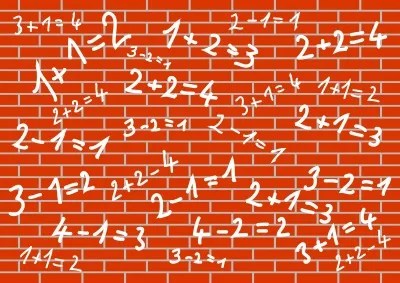Huntington Learning Center is joining schools, colleges, universities, student groups, and other associations and interest groups to celebrate Mathematics Awareness Month this April.

Huntington Learning Center is joining schools, colleges, universities, student groups, and other associations and interest groups to celebrate Mathematics Awareness Month this April. An annual celebration, Mathematics Awareness Month began in 1986 when President Ronald Reagan issued a proclamation for National Mathematics Awareness Week. The American Mathematical Society, the American Statistical Association, the Mathematical Association of America and the Society for Industrial Applied Mathematics join forces each year to generate awareness around timely issues as they relate to mathematics.
The theme of this year’s Mathematics Awareness Month is “Mathematics of Sustainability,” which illustrates the challenge of balancing human needs against the world’s limited resources. Mathematicians and other practitioners in a variety of fields use math to help the world understand this complex issue. This year’s Mathematics Awareness Month focuses on math as a key tool to develop solutions for a sustainable way of life.
“Math is such a critical part of the solution to the problems humanity faces,” says Eileen Huntington, co-founder of Huntington Learning Center. “As the world seeks to address and overcome these problems in today’s complex world, undoubtedly math will move to the forefront. Huntington is proud to celebrate Mathematics Awareness Month and raise awareness of math’s important role in achieving world sustainability.”
Huntington offers a few fun ideas for parents to help their child practice math while at home or on the go:
1. Give your child a ruler and have him or her measure things around the house. As he or she gets a sense for the length of various objects, have your child estimate how long something will be before measuring.
2. Encourage your child to use math to research and calculate interesting facts about the environment and sustainable living—visit websites for organizations such as the EPA and the National Solid Wastes Management Association for statistics. How many pounds of trash does each American produce every year? How much energy does recycling one plastic bottle save—and how much would your child save by recycling one plastic bottle a day for a whole year?
3. When shopping, let your child count the correct amount of dollars and coins to pay for things. Practice subtraction and estimating, too. What will your family’s groceries cost? If he or she gives a $20 bill for a meal that costs $17.50, how much change should you receive back?
4. Open a savings account for your child and have your child keep track of his or her deposits and withdrawals in a savings account booklet. Teach him or her to calculate interest.
5. Cook together and have your child do all of the measuring.
6. Throughout the day, have your child tell you the time. Practice different ways of telling time—what’s another way of saying 2:45? How much time until half past four?
7. Do a little math research on an area in which your child is interested. What is the population of your city? Your state? How much bigger or smaller are your neighboring states (by numbers and for a real challenge, by percentage)? What was your city’s and state’s population 10 or 50 years ago?
For more tips to help students learn math, view Huntington’s parent guide, Helping Your Child Learn Math at the Amazon.com Kindle store.
To learn more about Mathematics Awareness Month, visit www.mathaware.org.
Founded in 1977, Huntington is a pioneer and leader in the tutoring industry. For over 35 years, Huntington has provided quality instruction to hundreds of thousands of students. Huntington prides itself on being “Your Tutoring Solution” for students in all grades and subjects. They tutor in academic skills, such as reading, phonics, math and study skills; and in advanced math and science subjects ranging from algebra through calculus and general science through physics. They also prepare students for state and standardized entrance exams, such as high school entrance exams and the SAT and ACT and provide free school tutoring to eligible schools.


















